Are you thinking about getting your Open Water scuba diving certification? You’re not alone as you embark on this quest to explore the underwater realm.
I’ve been certified for over ten years and counting and let me tell you – it was the best decision of my life.
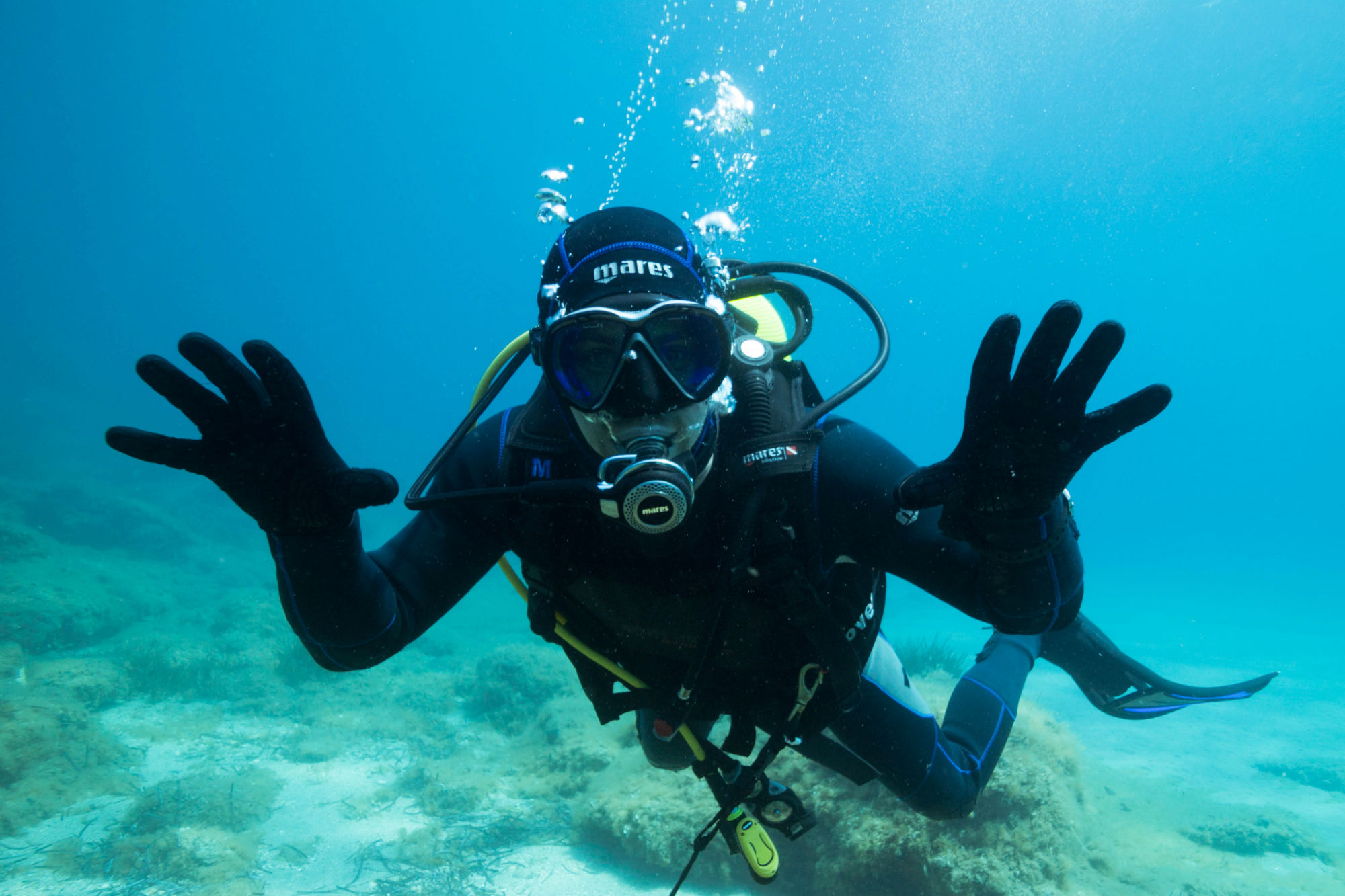
Every year thousands of people all over the world get scuba certified. Scuba diving is a fast growing hobby that has captivated the hearts of many. With seventy percent of the planet resting underwater, you’ve got to dive in to truly see what the world has to offer.
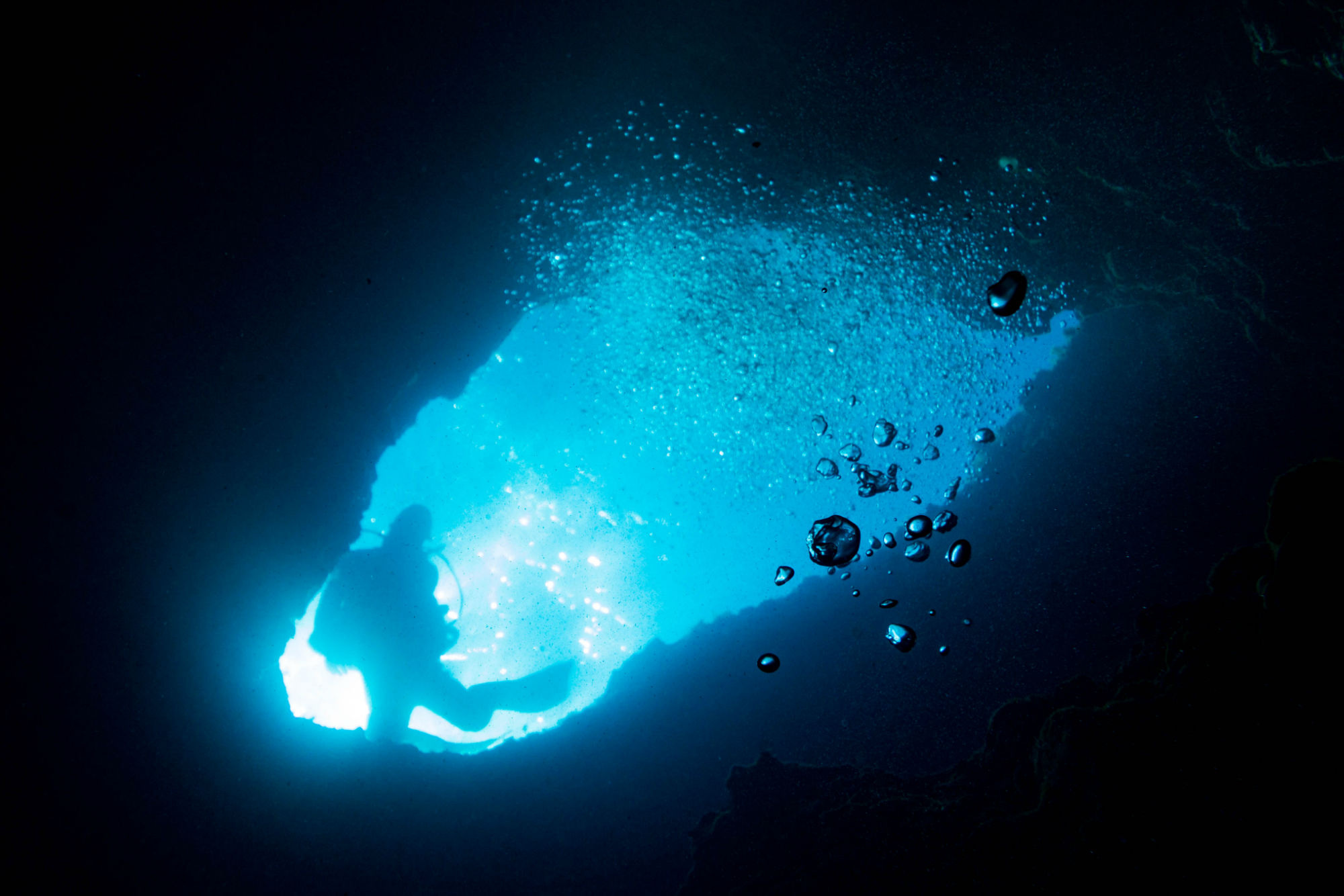
Learning to scuba dive is an adventure that will change your world. Bridging the gap between swimming and snorkeling to full-fledged scuba diving is a big step. It’s also a pretty expensive endeavor.
I was a swimmer my entire life before I became a scuba diver. I could never get enough of the underwater world. As a kid I use to spend hours in the water pretending I was a mermaid. By the time I finished elementary school I knew I wanted to get into something ocean related. In high school I geared all of my studies towards conquering my dream and becoming a marine biologist.
To make sure you are ready to take the plunge into the beautiful world of diving here are a few questions to keep in mind:
If you’re still on the fence about taking your Open Water scuba diving course consider trying a Discover Scuba Diving program.
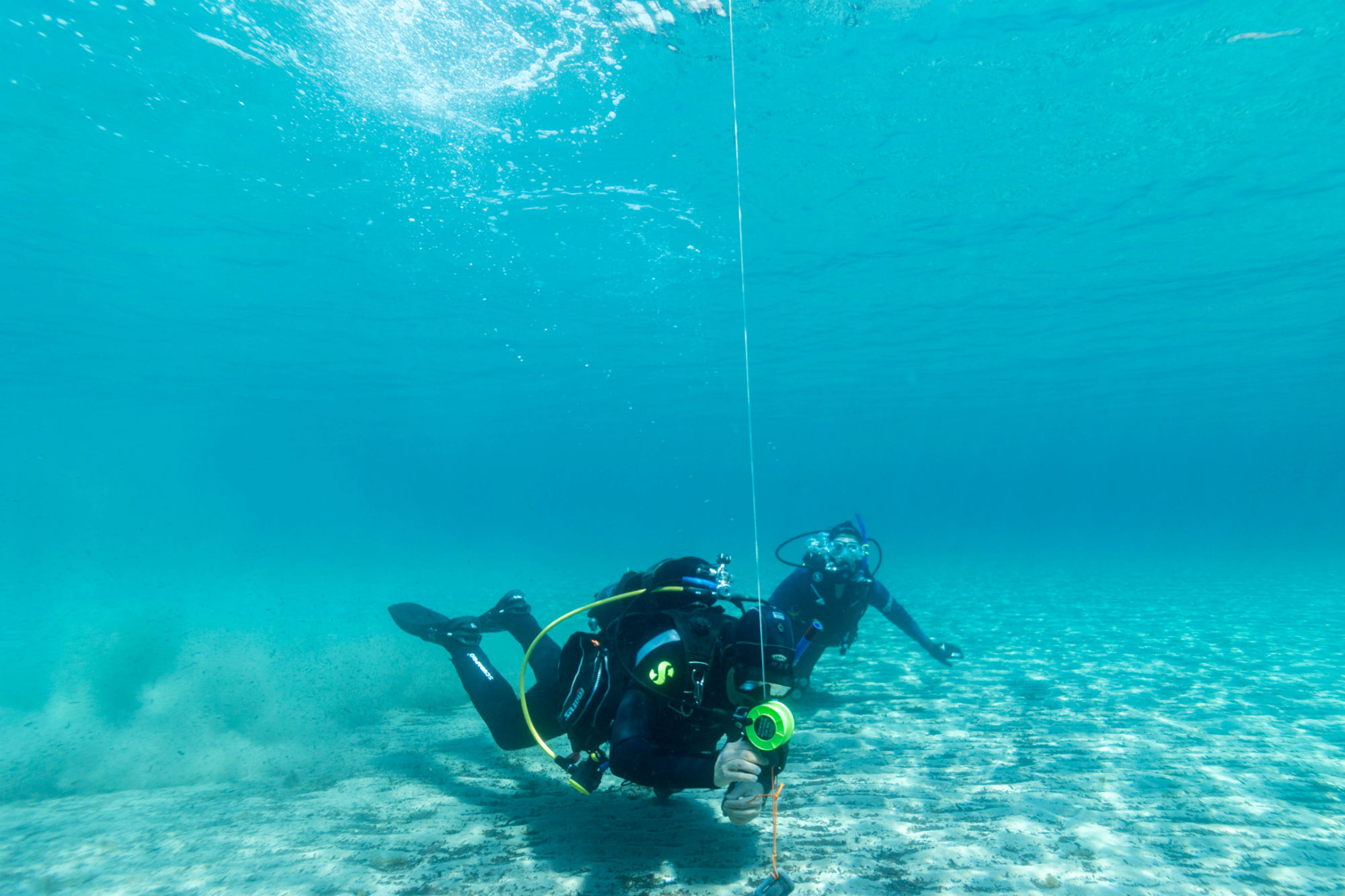
The Discover Scuba Diving program is designed to allow students to dip their toes into the wonderful world of scuba diving while under the direct supervision of a licensed instructor. On average the program costs anywhere from $60.00 to $100.00 per dive. During this program, participants will learn about the scuba gear basics, how to assemble dive gear and even try a dive. What better way to determine if scuba diving is the best fit for you than by submerging yourself into the aquatic world?
If you plan your Discover Scuba right, some programs even count your dive towards the first dive of the Open Water course.
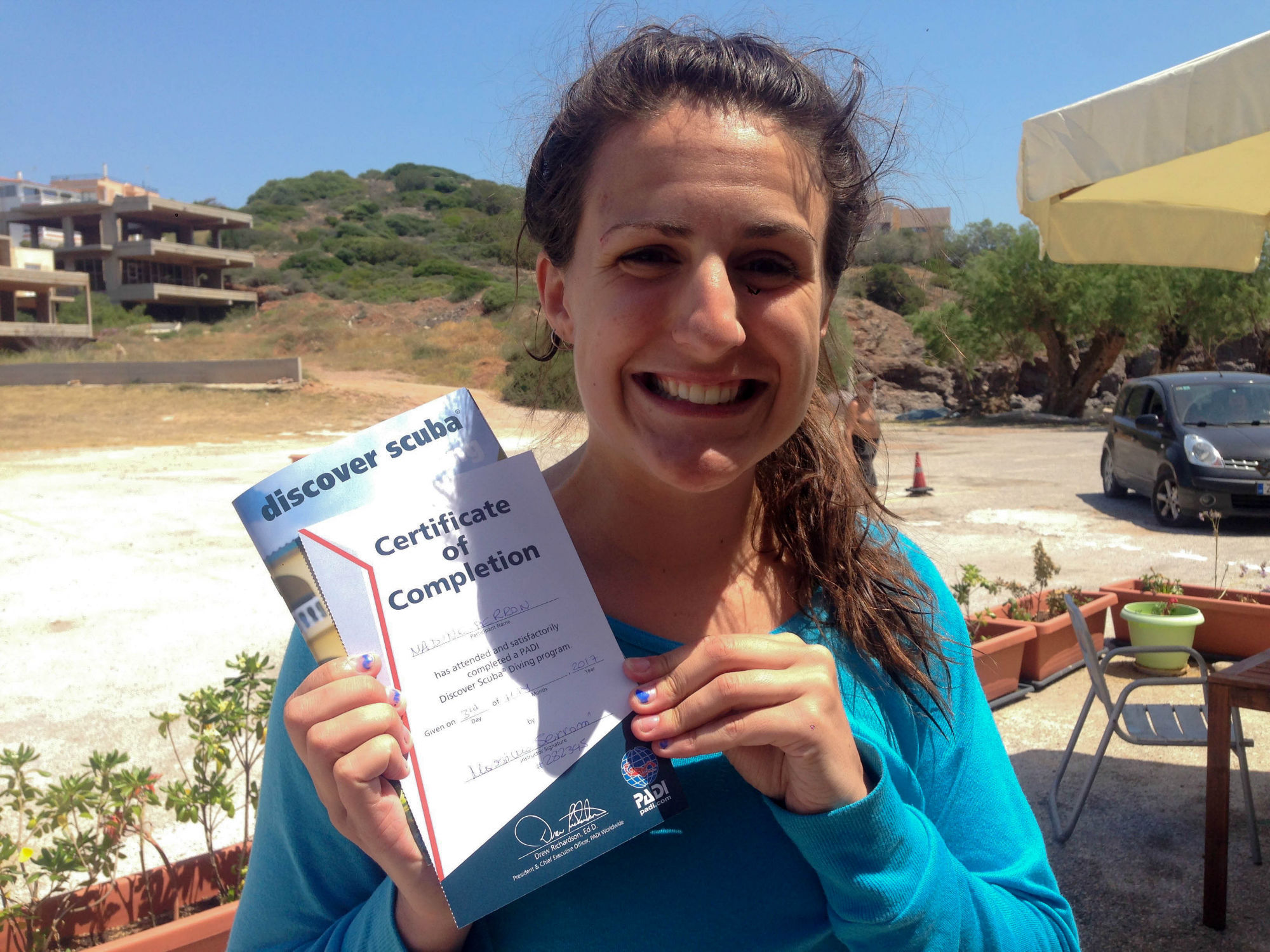
For a newbie diver that has finally decided to bite the bullet and take an Open Water scuba course, it can be very overwhelming trying to determine which institution to get certified with. PADI, NAUI, SSI… there are over 50 options to choose from when it comes to diving!
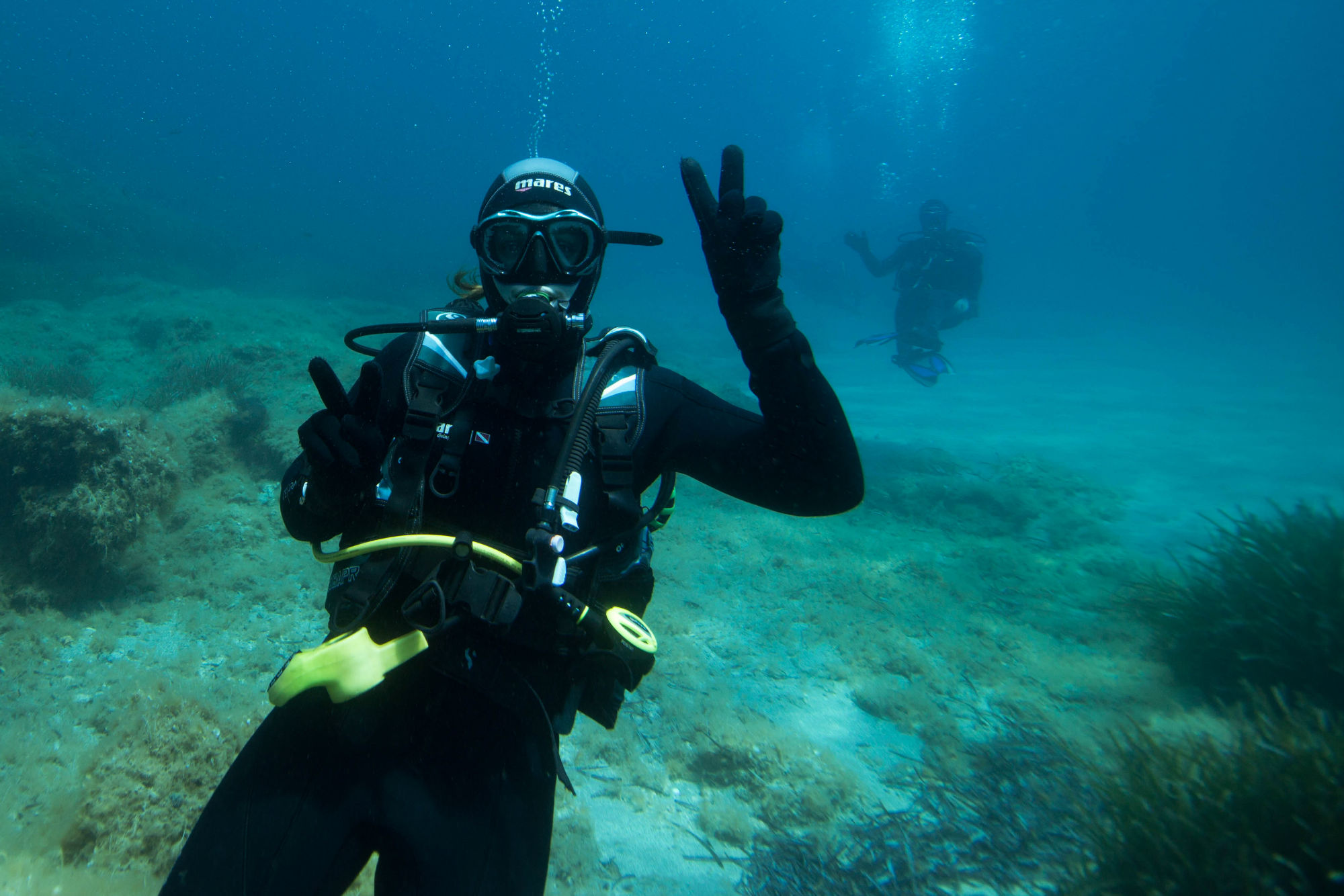
PADI is the largest dive organization worldwide. Every year this for-profit company trains tons of scuba divers, from beginner all the way up to the professional level. PADI has recognized dive shops all over the world.
NAUI is a not for profit organization that prides itself on the educational aspect of diving. They have one of the highest training standards in the recreational diving industry and have had scuba diving pioneers like Jacques-Yves Cousteau on their Board of Directors.
Bringing people together through communication and cooperation both above and below the water, SSI believes that there are four distinct building blocks to becoming a diver – knowledge, skills, equipment, and experience. By making you comfortable with every phase of your, training SSI aims at making it possible for anyone to learn to scuba dive
While there are more than these three institutions that can certify you in all levels of scuba diving, by going with PADI, NAUI OR SSI you are setting yourself up for success. They are the most significant dive organizations out there that are known and respected all over the globe. Any dive shop will readily recognize their certification cards.
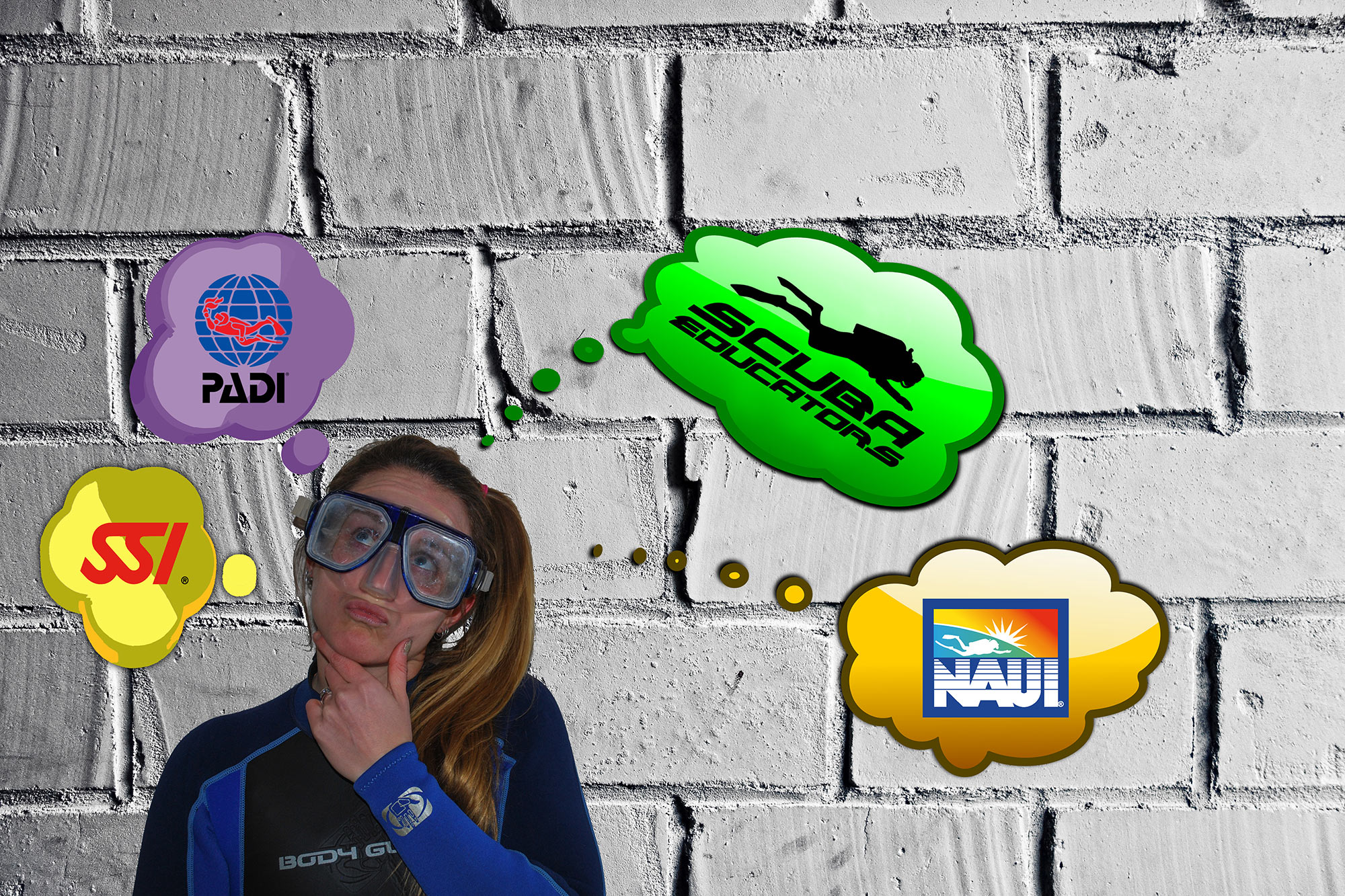
Wondering which scuba diving agency to use? It can be hard to choose where to do your scuba certification. To help, we’ve compiled a write-up with top agency-related information all in one place. To start your scuba journey read our PADI vs. SEI vs. NAUI vs. SSI blog post.
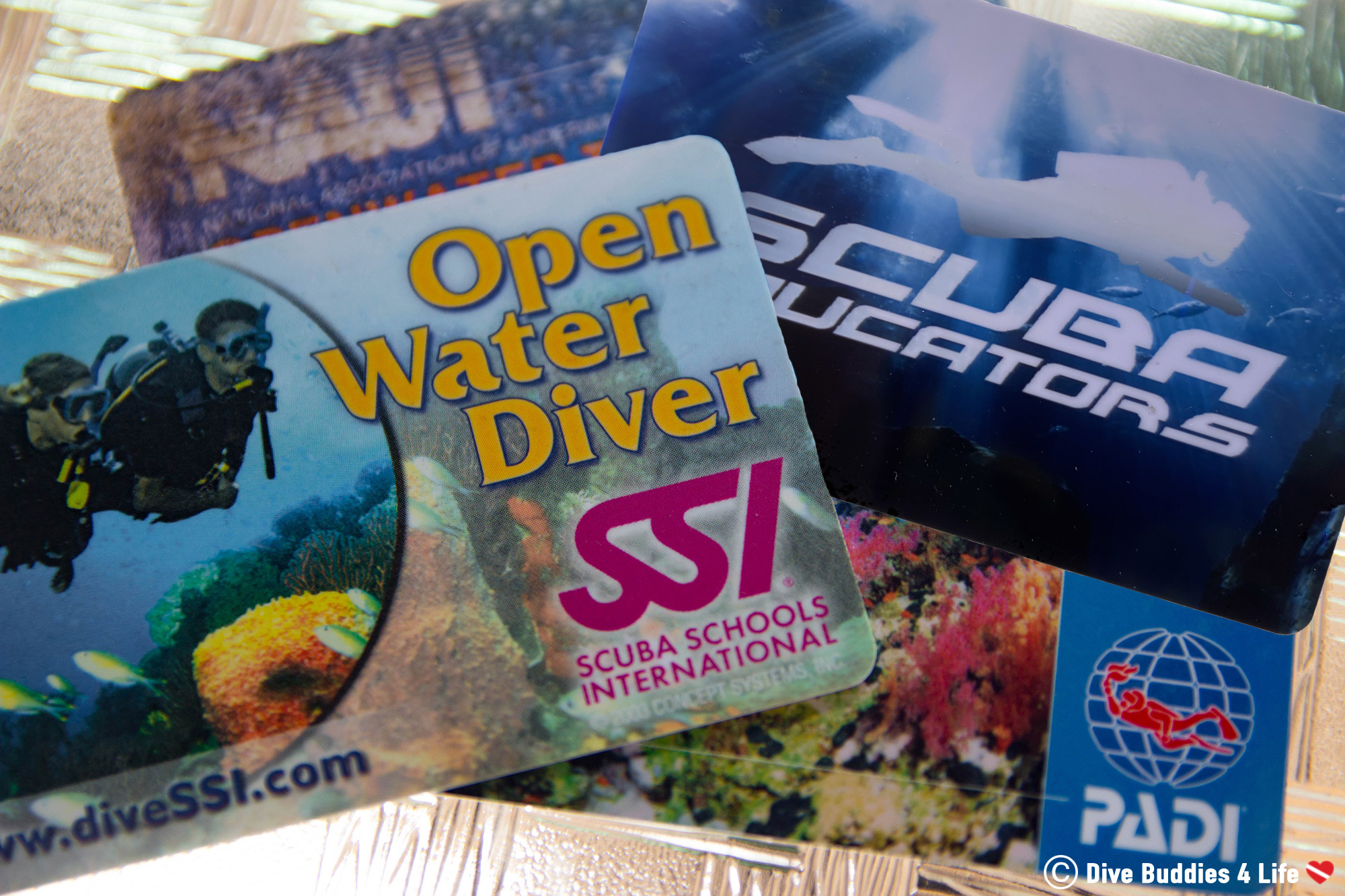
There are three ways to get scuba certified; locally, on vacation, or a combination of both.
Have some friends that already have their scuba certification? Talk to them and get some feedback. Find out how they liked their course and the instructor.
If you’re coming into diving with no prior connections or knowledge, take a trip to your local dive shop. Nothing beats a good old face to face meeting with a future instructor. Many sure to ask lots of questions about the length of the course, dates of the course, cost of the course, scuba institution you will become certified with, the maximum number of students in the class, what kind of material you need read before the course starts.
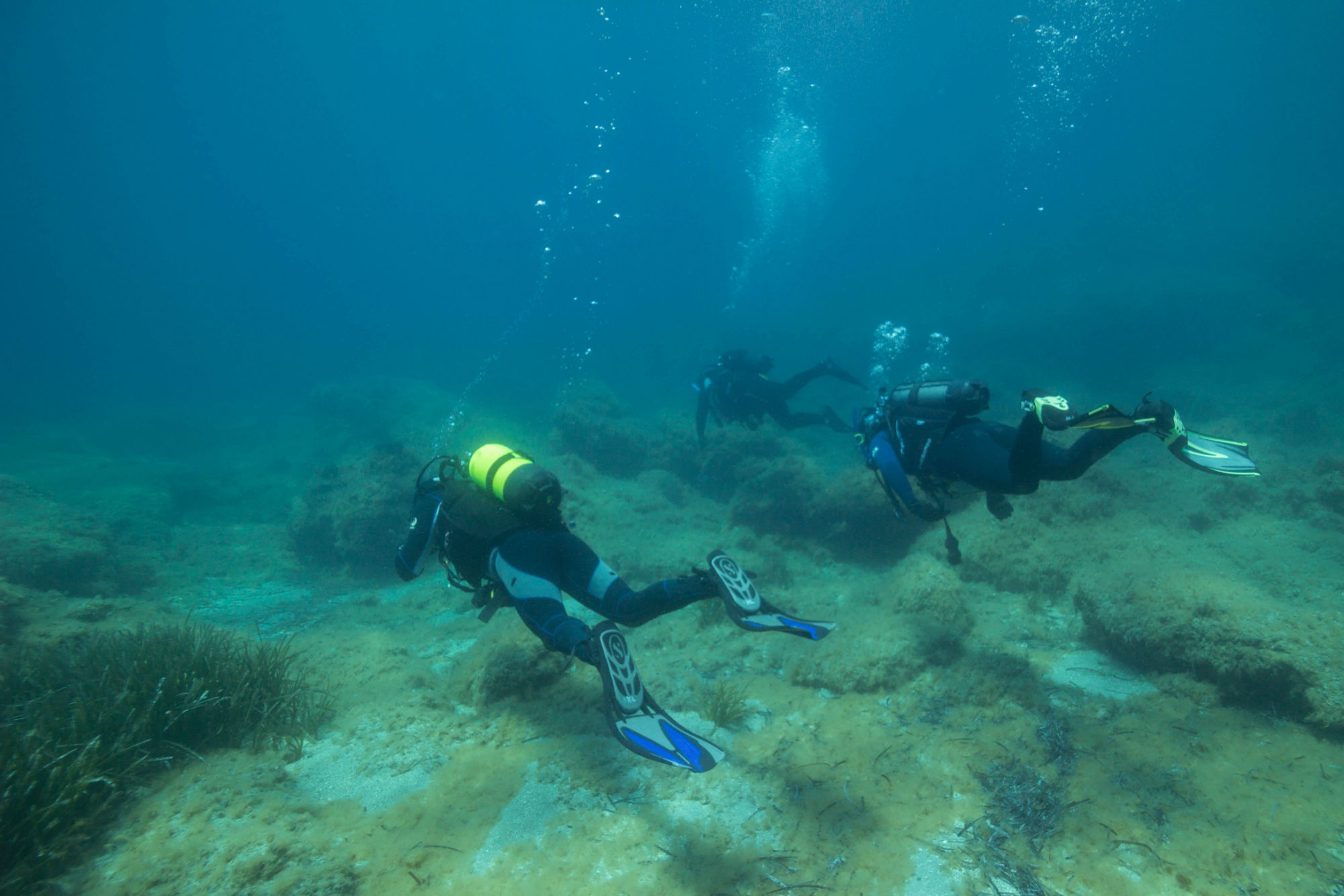
If getting certified at a local dive shop is not for you, or your hometown doesn’t have a scuba center, you can opt to do your Open Water diving certification on vacation. Lots of southern dive locations have courses offered on a regular basis, and you can complete your certification in as little as three to four days.
Make sure to check in with PADI, NAUI or SSI and find out which dive centers they would recommend so you can ensure that your training is conducted safely and professionally.
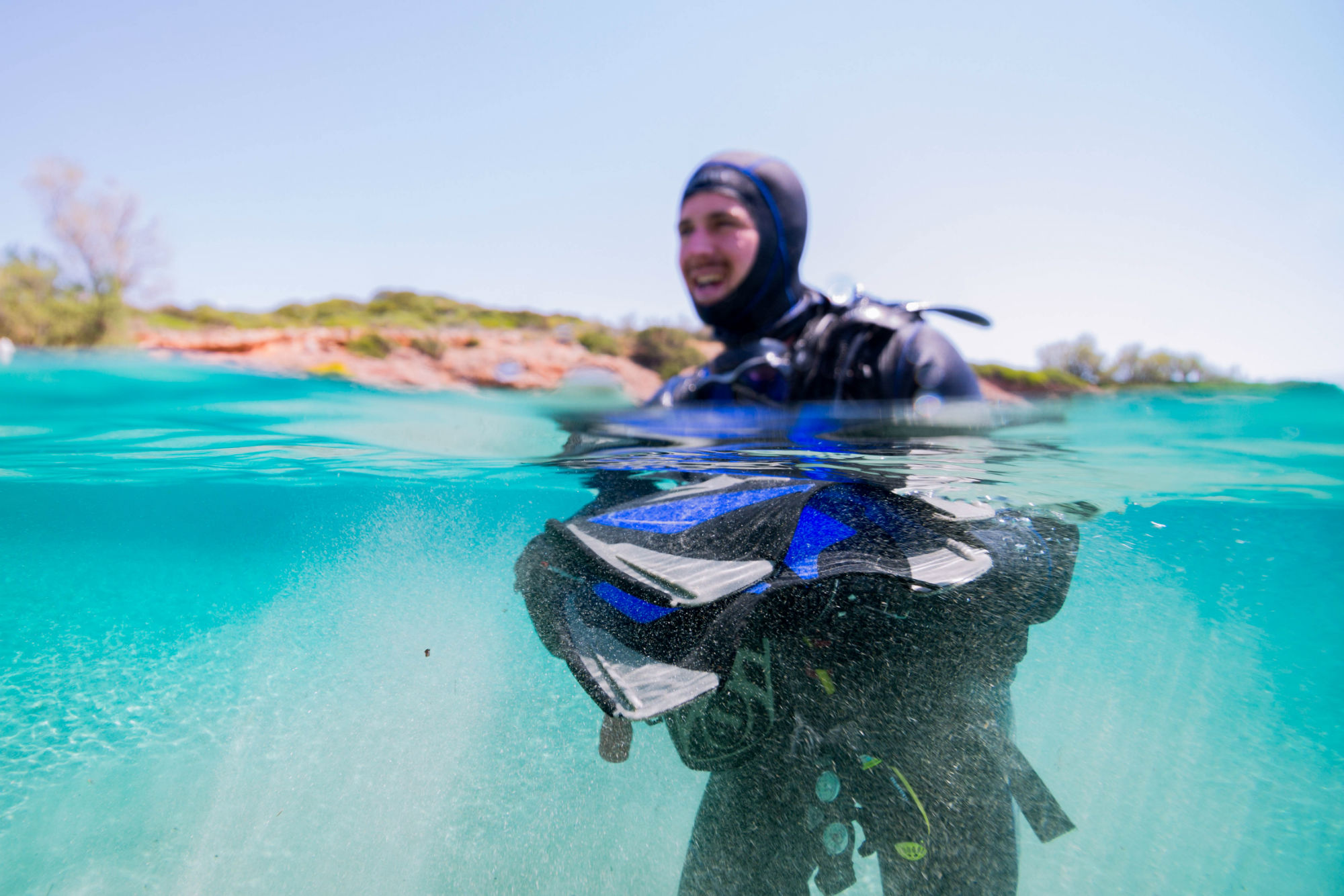
In recent years diving institutions are becoming more and more flexible in the way they run their Open Water courses. Now students can complete the book work, and pool dives with a local dive shop (because let’s be honest, who wants to be in a classroom while on vacation) and proceed to do their open water dives with a second dive center while on vacation.
This new and improved way to get your Open Water certification is making waves in the diving community, especially if you live in cold regions of the world.
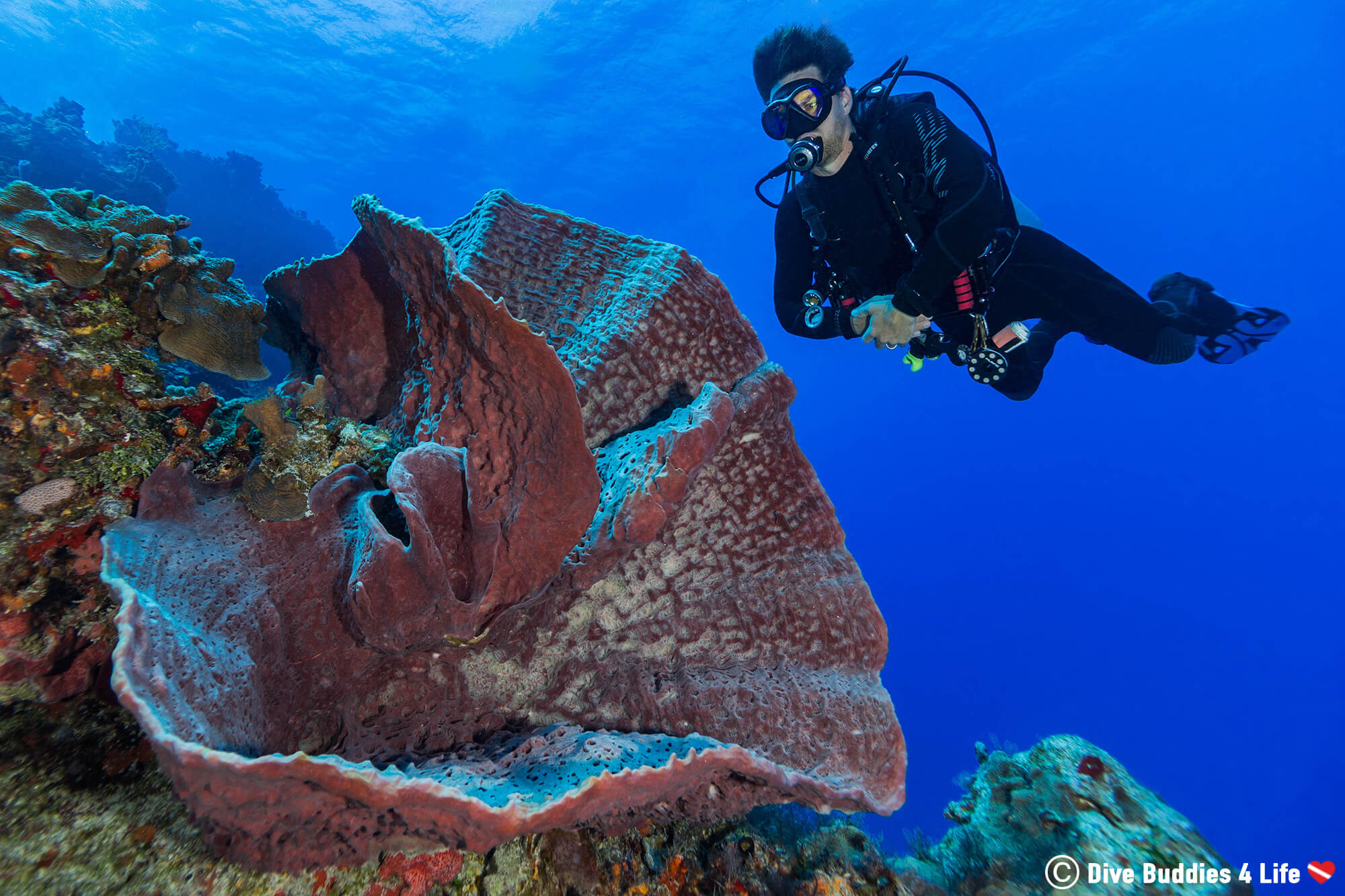
While it may be nice to take a trip and get yourself certified in the warm tropical waters of the Caribbean, my recommendation is to start locally. Diving in and of itself is a sensory overload, by trying to do it in a strange country with an unfamiliar dive shop you are setting yourself up for problems. Working with a local dive shop you know and trust and immersing yourself into a familiar environment will give you the chance to really master your course skills. On top of that, it will introduce you to a local diving community you can join after you complete your course and further master your skills.
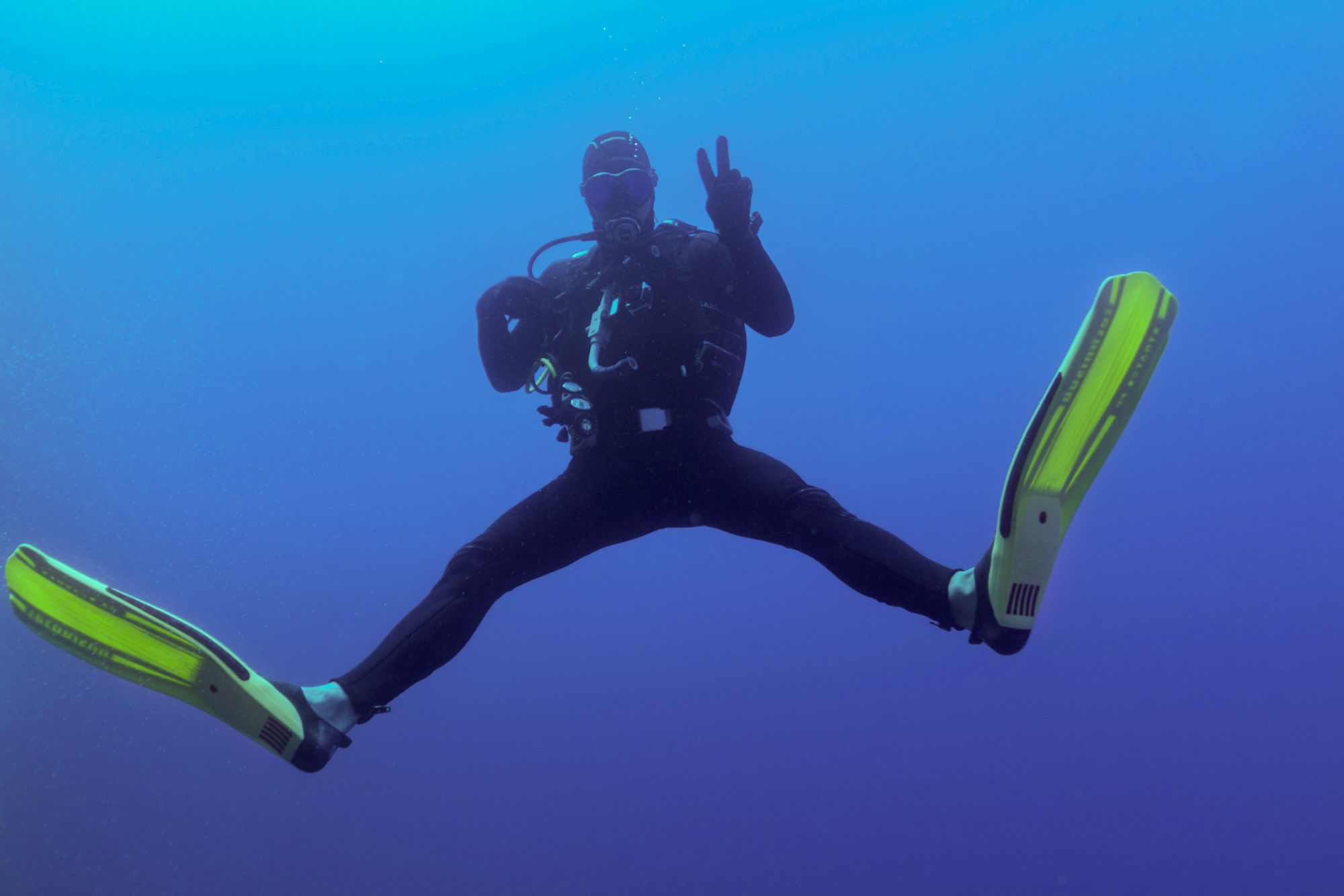
I did my Open Water diving certification in the lake region of northern Canada. Right from the get go I got used to diving with lots of gear (14 mm wetsuit, 7 kg (15 lb) of weight) and in a dark and dismal lake environment. By setting the bar low and perfecting my buoyancy with all that equipment it made southern tropical diving that much more enjoyable. Now instead of struggling with putting on the equipment and worrying about my fluctuating buoyancy, I can swim freely with the fishies in neutral buoyancy feeling like I barely have any equipment on!
Start saving your pocket change future divers; taking a scuba diving course can be pretty expensive. Getting your Open Water scuba diving certificate can cost anywhere from $150.00 to $600.00 depending on how you go about deciding to complete your course. The average cost is about $250.00 to $300.00 per student. This price usually includes all the course material including a logbook, bumper sticker, eRDPML calculator (Electronic Recreational Dive Planner for Multilevel Dive Planning) and your Open Water Diver manual.
In addition to paying for your Open Water course, most dive centers require student divers to have their own mask, snorkel, boots and open heeled fins. These items can cost a surplus of approximately $250.00 so make sure you budget that into your total cost as well.
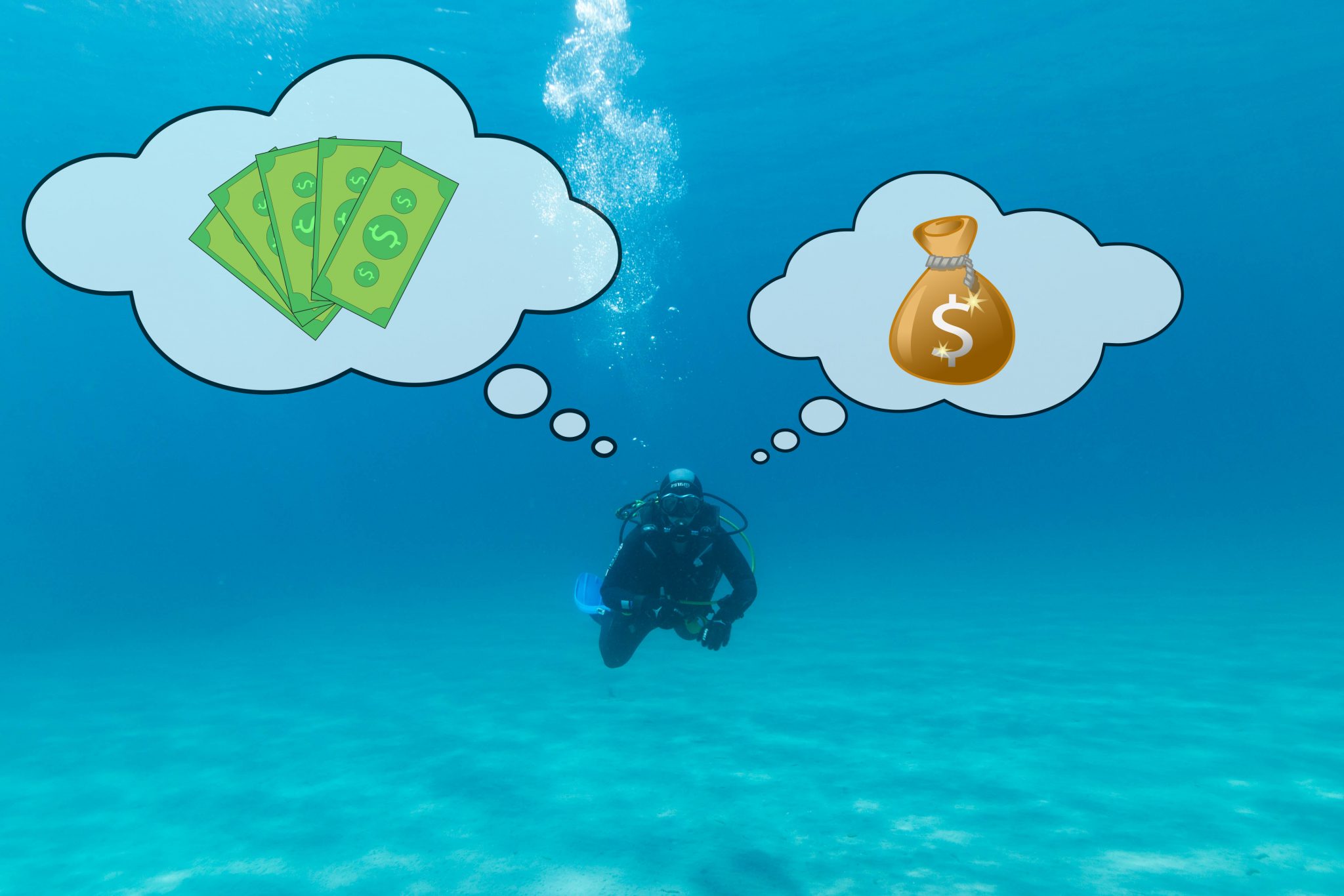
The Open Water course structure consists of a theoretical section, pool section, and open water section. In total this course takes about three to five days to complete. If you consider yourself a fish underwater, the intensive three-day course will likely be perfect for you. If you are a little more nervous in the water, the four or five-day course is a more reasonable length for practice and better instructor coaching.
In the theoretical section (average time: 12-15 hours) students hit the books and learn all about the underwater world. This section can be completed online, studied independently or acquired in a classroom. Throughout the theoretical part, student familiarizes themselves with the basic principles of scuba diving (how scuba diving affects your body, what to see in the underwater world, the physics of the ocean). At the end of the theoretical section, students complete a multiple choice test from which they must pass to move on to the hands-on portion of the course.
After completing the theoretical section, the Open Water course then progresses to a pool (or very confined lake) where students are introduced to the gear and make their first dive. Providing a safe and controlled environment for rookie divers to get used to the clunky equipment, practice their buoyancy and take that very first underwater breath is the perfect way to start diving. In the pool, divers will be tested on a long list of skills (33 in total!!). Don’t worry if you can’t get them on the first few tries you will be retested on them in the open water section. Your instructor will demonstrate each skill in turn, and then it will be up to you to mimic what you’ve just seen.
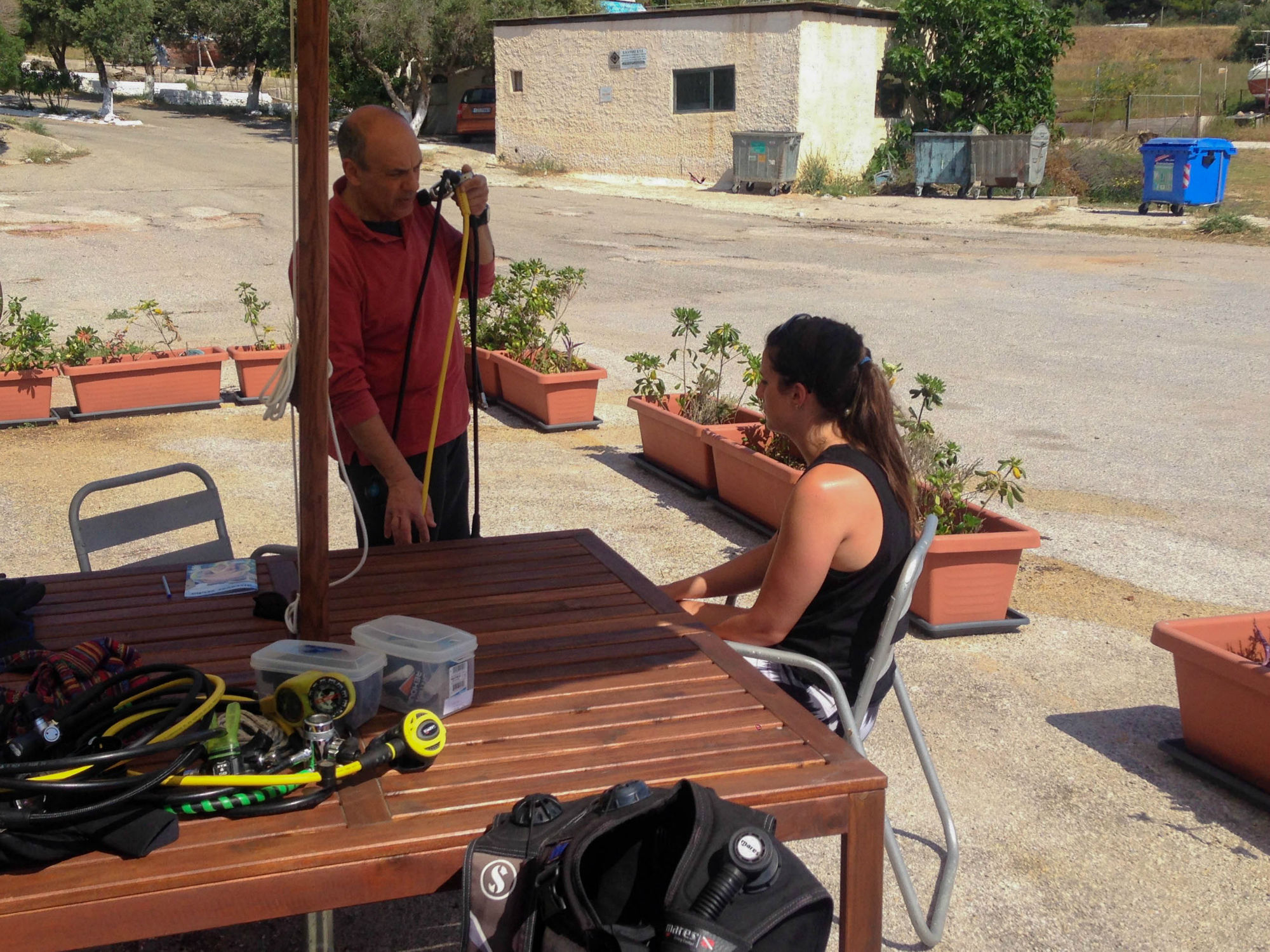
The final part of the course is, in my opinion, the most exciting part! Rookie divers will finally get to use all their skill to venture out into the real world and explore. In the open water sessions, students must complete four-five dives in which they redemonstrate the skills learned in the pool. Typically the first, second and third dive is dedicated to orientation and scuba skills, and the last dives are more relaxed allowing you to bring everything together.
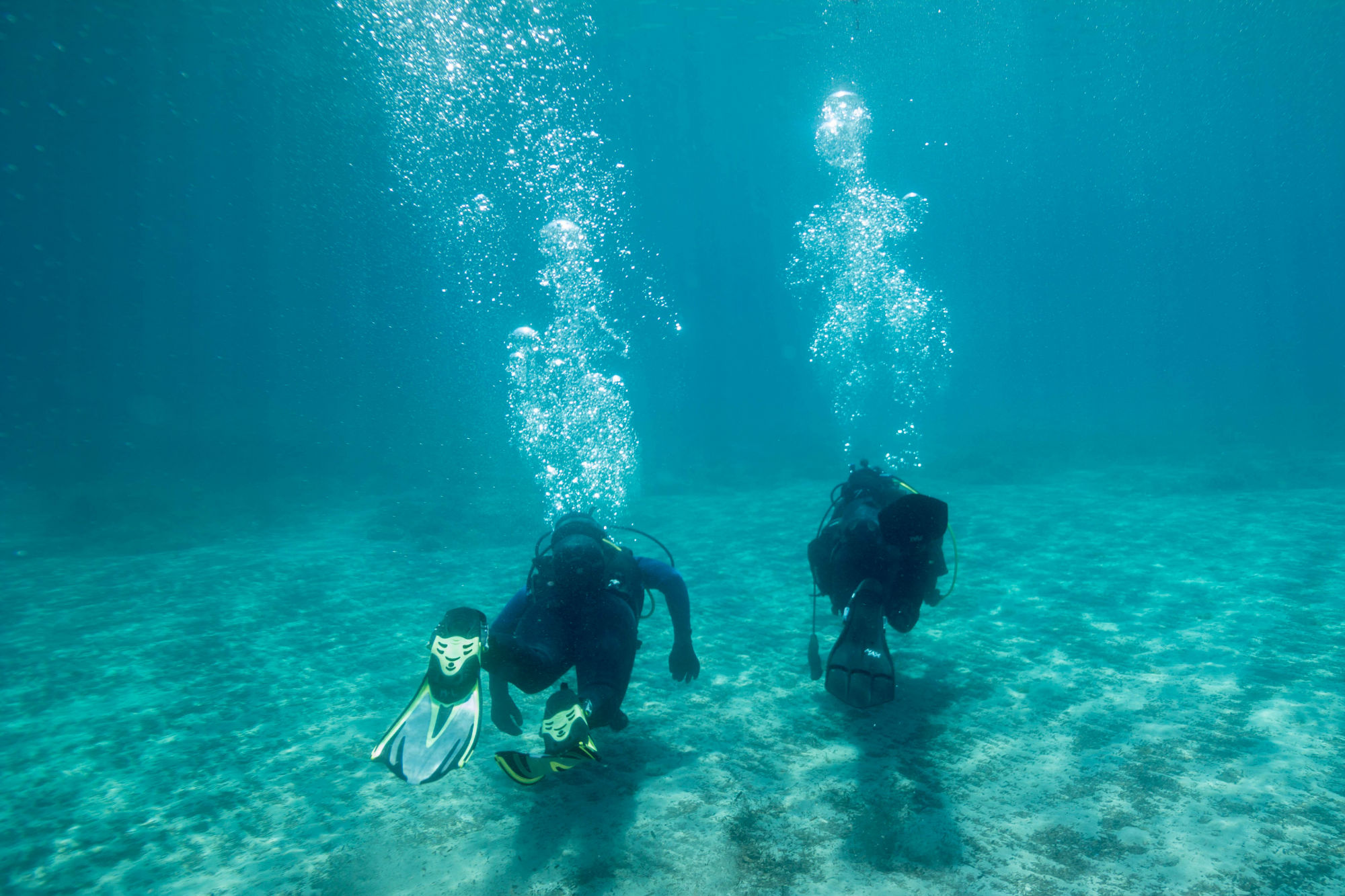
You’ve passed your theory with flying colors, aced all your underwater skills and logged all the bottom time required to complete your Open Water certification. Way to go you are now part of the club!
But your scuba diving should not stop there. Once you become a diver, it’s important to keep active in the diving industry and perfect all those skills you learned during the course. Try and find a local club to join and sign up for their online scuba diving newsletter to stay current in the diving world. Keeping your diving skills sharp and your scuba diving knowledge cutting edge will ensure that you have a fabulous and safe dive!
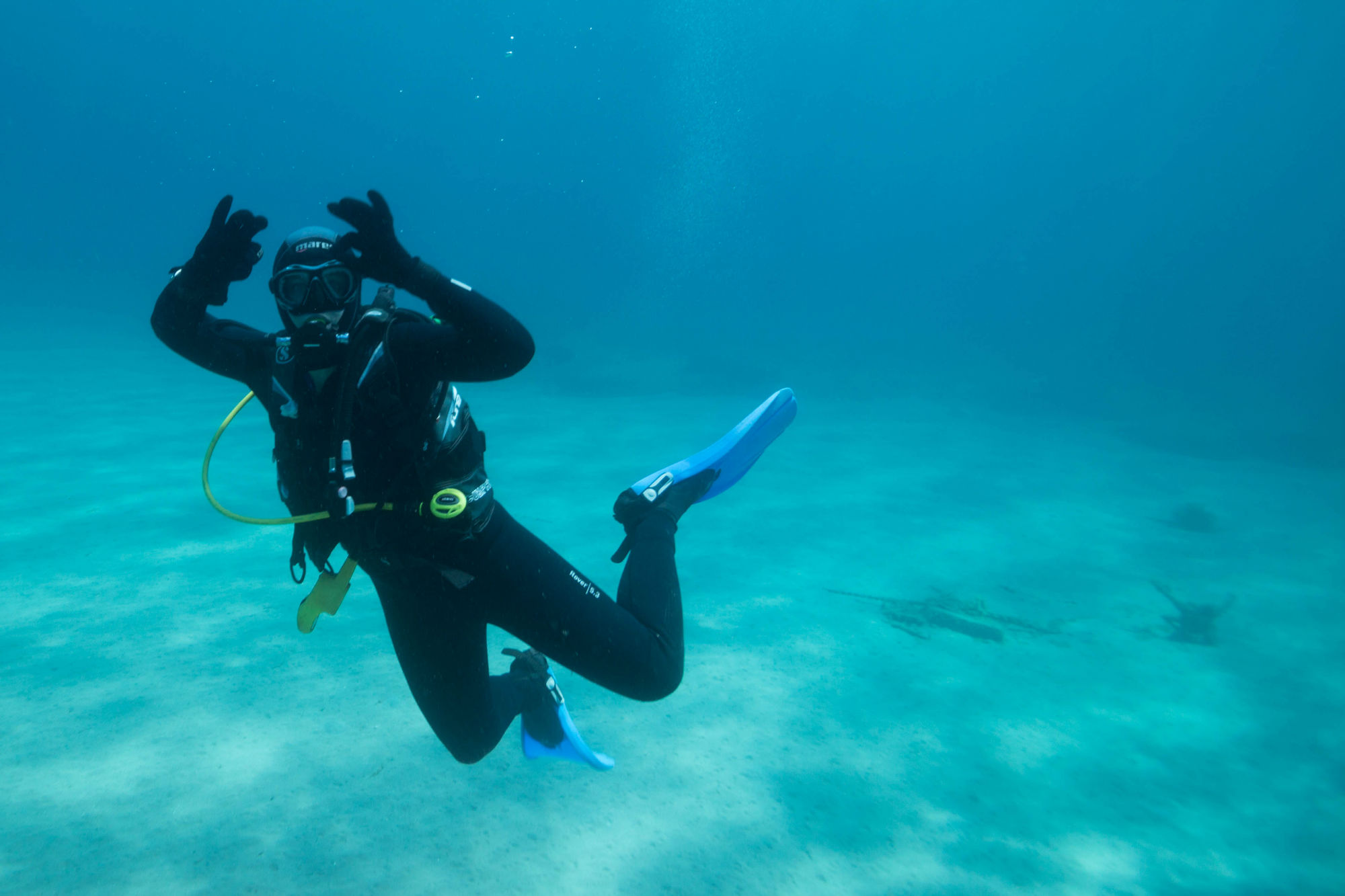
For all those non-divers contemplating getting their certification; what is the one thing holding you back from taking the plunge into the world of scuba diving?
Writers Note: This post was created in collaboration with Globo Surf. Globo Surf is a website for snow, land and water sports equipment and reviews. Their mission is to personally help as many people as possible to get the right gear in order to have the best day out in the water as possible.
Additionally, this post may contain affiliate links. We will make a small commission if you make a purchase through one of these links, at no extra cost to you. See full disclosure and disclaimer policy here.

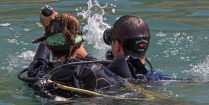
Becoming a PADI Rescue Diver is a great way to further your knowledge and give yourself the tools to stay safe on a dive.
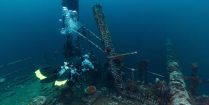
Whether sunk on purpose or as the result of a mishap, it’s a breathtaking experience to be able to visit a sunken wreck while scuba diving.
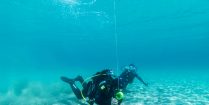
For some scuba diving is more than just a hobby - it’s a lifestyle. Here is everything you should know about getting your divemaster certification.
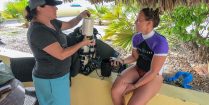
Bonaire TEK is an annual October occurrence, where Buddy Dive Resort partners with leaders in the tech diving industry for a week of technical dive demonstrations, equipment trials, presentations, training ins and outs, and camaraderie.

Are you a pig on air? You are not alone. Find out how you can get more out of your scuba diving tank.
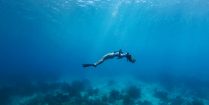
Hair versus scuba, now that's a combination that doesn't mix. So how do you stay away from the tares, tangles and hours upon hours of post-dive hair brushing?
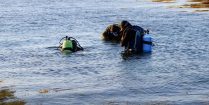
It's not easy being green in a day and age where everything is plastic and waste. Let sustainability lead the way as you explore the underwater world.
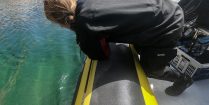
As a diver, sometimes you get hit with seasickness. Here are our solutions to dealing with seasickness before and during your dive.
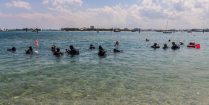
Organizing a dive vacation can be a challenge. To help, keep these four questions in mind when planning your next scuba diving vacation.
